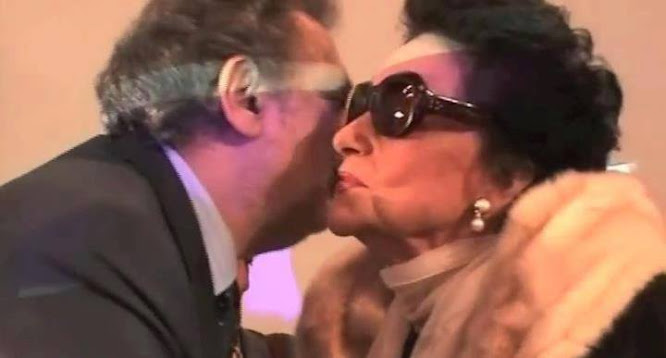Ritratto di gruppo con Maurizio Pollini, Leyla Gencer e Dino Ciani
Materia e tecnica / Material and technique:
Indicazioni sul soggetto / Information on the subject
ritratto
di Maurizio Pollini e Dino Ciani con Leyla Gencer in un camerino del teatro
Donizetti di Bergamo.
Indicazioni sull'oggetto / Information on the object
Il
fotografo ha selezionato il presente fotogramma apponendo un simbolo sul
provino stampato a corredo del negativo.
Notizie storico critiche / Critical historical news
La
fotografia è stata realizzata da Alfonso Modonesi al Teatro Donizetti di
Bergamo ed è datata dall'Autore stesso al 11 maggio 1970.
Gli scatti della serie, tutti ambientati al Teatro Donizetti di Bergamo, sono
giunti in Museo raggruppati sotto l'unica dicitura "Azienda Autonoma -
Concerti Donizetti".
L'Azienda Autonoma, con sede in viale Vittorio Emanuele II, 20 a Bergamo, era
l'ente che, tra le altre attività, gestiva per la città gli eventi proposti dal
"Festival Pianistico Internazionale di Brescia e Bergamo"
organizzazione attiva dal 1964.
Iscrizioni / Registrations
Al
fronte del foglio di provini stampati a corredo dei negativi è presente
l'annotazione manoscritta in inchiostro: "Concerto / Dino Ciani /
5/11/70".
Bibliografia in rete / Online bibliography
Festival Pianistico Internazionale di Brescia e Bergamo - 14/12/2020
Informazioni / Information
Materiale datato al / Material date to: 11
maggio 1970
ARCHIVIO MUSEO DELLE STORIE BERGAMO ©
Omaggio di Leyla Gencer alla tomba di Gaetano Donizetti
Indicazioni generali sul soggetto / General information on the subject
Serie di scatti che ritraggono
Leyla Gencer, accompagnata da varie persone, mentre omaggia la tomba di Gaetano
Donizetti.
Indicazioni sull'oggetto / Information on the object
I negativi sono conservati nella
busta originale n. 524 della Rubrica 12 anno 1970.
Notizie storico critiche / Critical historical news
Il servizio fotografico è composto da 9 scatti: ne sono stati digitalizzati e catalogati 4.
Iscrizioni / Registrations
Iscrizioni manoscritte sulla
busta di conservazione originale:
- a penna blu "OMAGGIO FLOREALE / GAETANO DONIZETTI / S.M. MAGGIORE"
(in alto, di Fausto Asperti?).
Stemmi, timbri e marchi / Coats of arms, stamps and brands
- a inchiostro blu "1970".
Voci correlate / Related entries
Informazioni / Information
Orchestra e Coro del Teatro alla Scala
Roberto Benaglio chorus master
Bettinelli Varianti per orchestra
Beethoven Fantasia in do min. per pianoforte, coro e orchestra op. 80
Hindemith Konzertmusik op. 50 per archi e ottoni
Strauss R. Tod und Verklärung
1970.11.05
Maurizio Pollini Giorgio Germont
Dino Ciani Piano and chorus
As I wrote in detail at the “Queen of Pirates” section which you can find at the second page of the Blog, Renato Caccamo who was a big fan of Leyla Gencer recorded all of her performances. In addition to being a prosecuting attorney in Milan, he was also a close friend of all the renowned artists of that era.
 |
| Gencer at Duomo with Caccamo, Pizzi and a friend |
 |
| with Domingo in another date and place |
 |
| with Pollini in Milan's Teatro Archimboldi |
 |
Abbado, Simionato, Domingo Photo © Teatro alla Scala / ERIO PICCAGLIANI, Milano |
 |
with Paolo & Nino Grassi Photo © Teatro alla Scala / ERIO PICCALIANI, Milano |
 |
| with Sergio Fantoni Photo:© Teatro alla Scala / ERIO PICCALIANI, Milano |
 |
with Nicolai Ghiaurov Photo © Teatro alla Scala / LELLI E MASOTTI, Milano |

































